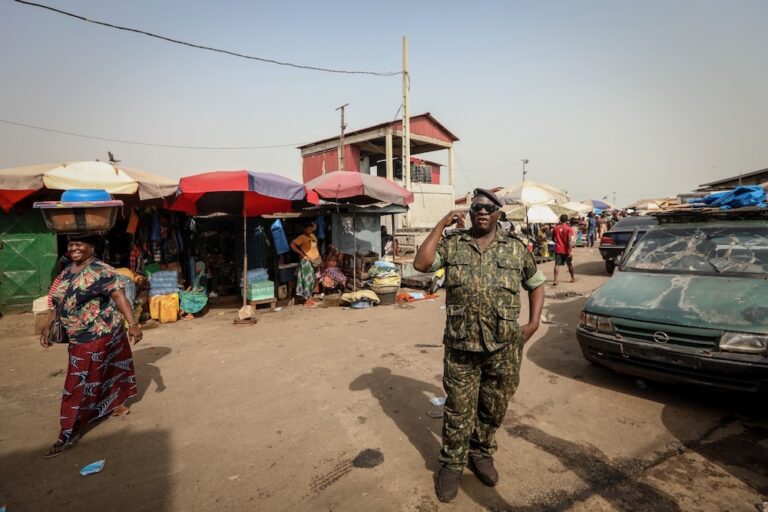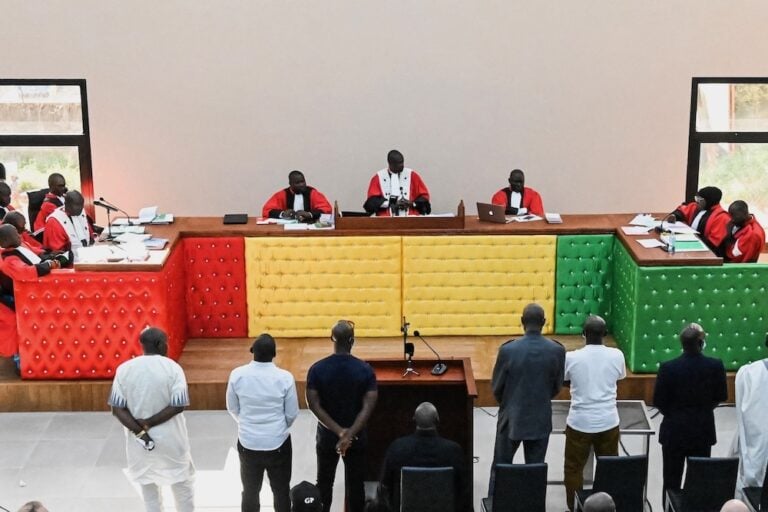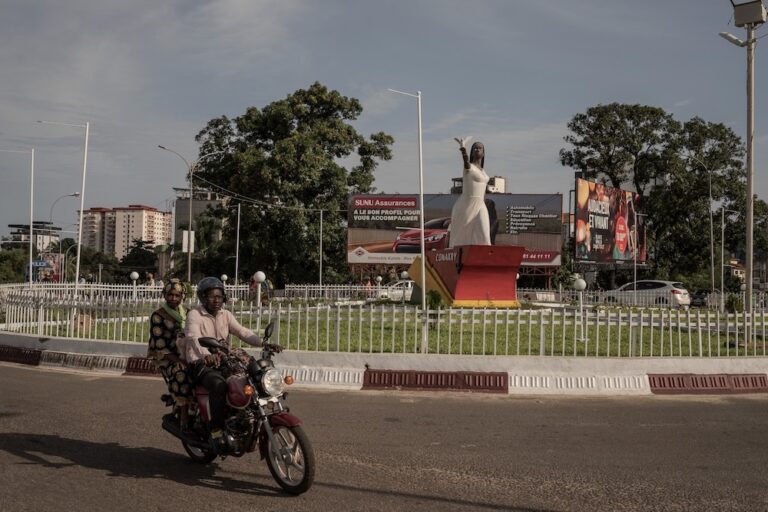(RSF/IFEX) – On 7 January 1998 Foday Fofana, a Sierra Leonean journalist for “The Independent” and correspondent for the British Broadcasting Corporation, was thrown out of Guinea after having been detained for three months at the Conakry central detention centre. He had been reporting on the alleged aggressions towards a civilian by an assistant commander […]
(RSF/IFEX) – On 7 January 1998 Foday Fofana, a Sierra Leonean journalist for
“The Independent” and correspondent for the British Broadcasting
Corporation, was thrown out of Guinea after having been detained for three
months at the Conakry central detention centre. He had been reporting on the
alleged aggressions towards a civilian by an assistant commander at the
Alpha Yaya camp (Conakry). Fofana was accused of “attacking state security,”
“lies and the use of lies,” and “attempting to usurp title and function.”
Judged and ordered out of the country on the same day, Fofana was escorted
to the Sierra Leonean border. The government spoke of a “violation of
juridical measures concerning foreign visits to Guinea” in its justification
of such action (see IFEX alert).
**Updates IFEX alert of 15 December 1997**
Background Information
In less than three weeks, the Guinean government has ordered the expulsion
of two journalists and the closure of two independent newspapers. And yet,
the press freedom situation in Guinea appears to have improved since 1996
when six journalists were incarcerated. It is disturbing to note the
degrading conditions under which journalists are forced to work during a
presidential campaign year. On 22 December 1997 Louis Esperant Celestin,
Ivory Coast editor-in-chief of “L’Oeil,” became the first journalist thrown
out of Guinea in 1997. He was accused of “inciting violence and rebellion”
for having published an article citing the words of the opposition party The
Democratic Opposition Coalition (Codem). On 26 December, the government shut
down two independent newspapers, “The Lynx” and “The Independent,” and
seized their equipment. Three days later, the Security Minister described
such action as a “routine operation” and said that equipment had been
confiscated for “research” purposes regarding questions of public security
(see IFEX alert of 29 December 1997).
Recommended Action
Send appeals to authorities:
in article 19 of the International Covenant on Civil and Political Rights
Appeals To
His Excellency Lansana Conte
President of the Republic of Guinea
Conakry, Guinea
Fax: +224 41 16 73
Please copy appeals to the source if possible.


